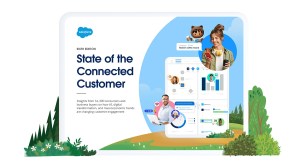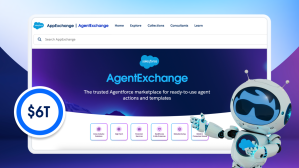Quick Take
- The sixth edition of Salesforce’s State of the Connected Customer reveals how customer engagement with businesses has changed with the rise of artificial intelligence (AI) and a shifting economy.
Businesses could soon face an AI trust gap with customers, according to a new survey of more than 14,000 consumers and business buyers across 25 countries. As brands increasingly adopt AI to increase efficiency and meet increasing customer expectations, nearly three quarters of their customers are concerned about unethical use of the technology.
As brands increasingly adopt AI to increase efficiency and meet increasing customer expectations, nearly three quarters of their customers are concerned about unethical use of the technology.”
Notably, consumers have become much less open to using AI over the last year. While 73% of business buyers and 51% of consumers are open to the use of AI to improve their experiences, those figures have dropped significantly since 2022’s survey, from 82% and 65%, respectively. Companies therefore have an opportunity to close this gap by implementing ethical guidelines and providing better visibility into how the technology is applied.
In addition to insights on generative AI, Salesforce’s sixth State of the Connected Customer report reveals evolving influences on purchase decisions and what customers look for from marketing, commerce, sales, and service interactions. See highlights from the research below.
Customers seek trust, responsible use as companies embrace generative AI
Survey results show a clear distinction between customers’ overall trust in companies and their faith that those companies will take advantage of new AI innovations responsibly. For example, while 76% of customers trust companies to make honest claims about their products and services, only 57% trust them to use AI ethically.
68% of customers say advances in AI make it more important for companies to be trustworthy.”
This is striking because 68% of customers say advances in AI make it more important for companies to be trustworthy, putting a growing onus on brands to earn customers’ confidence as technology matures.
Brands are racing to take advantage of generative AI as its growing power to transform marketing, commerce, sales, and customer service comes into focus. Their customers, however, urge a thoughtful approach to adopting the technology, grounded in security, ethics, and human oversight.
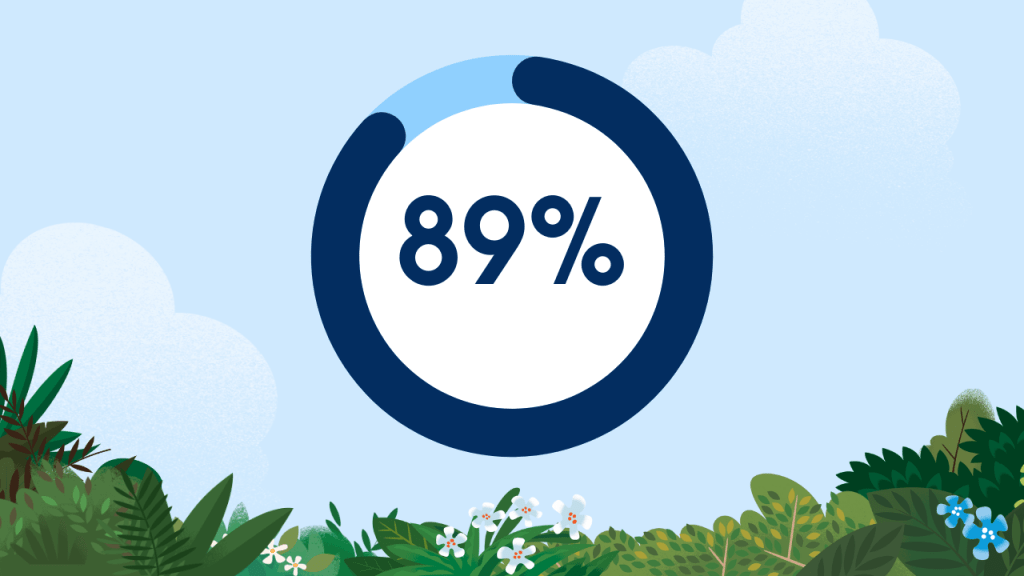
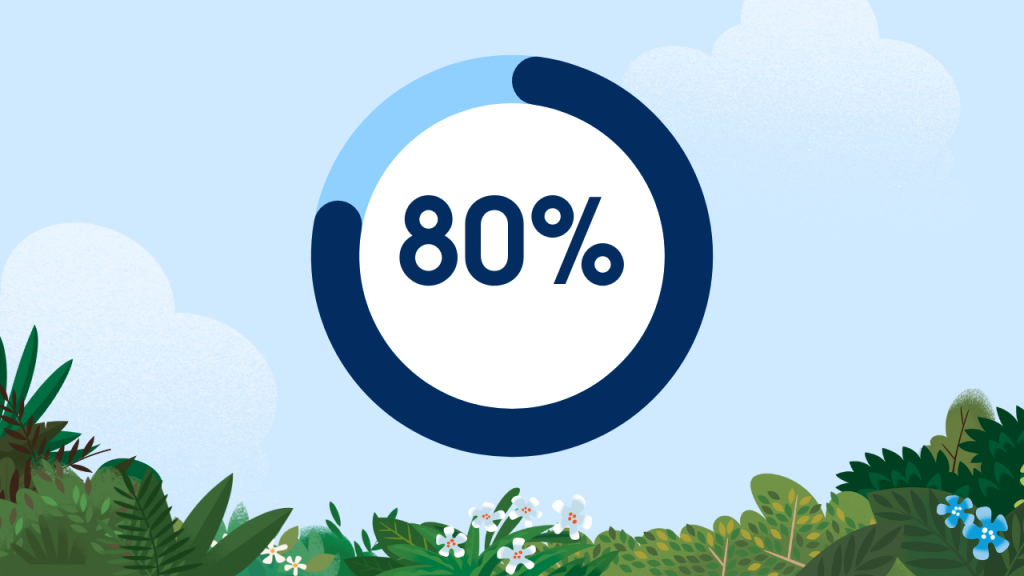
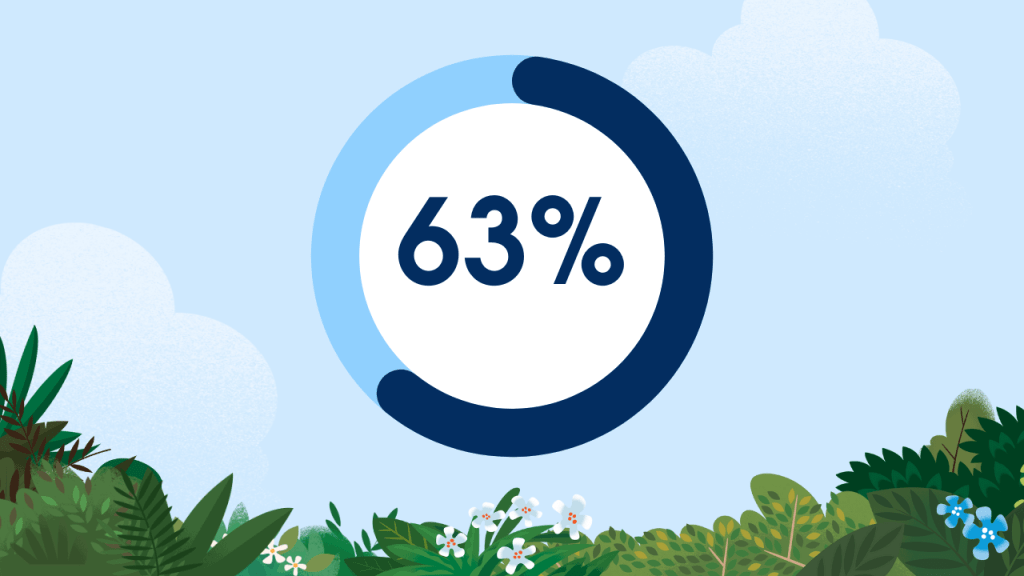
“Ethical AI is a pressing concern for our customers and for our customers’ customers,” said Kathy Baxter, Principal Architect, Responsible AI & Tech, Salesforce. “Getting it right means creating AI with trust at the center of everything you do. That means gathering data with transparency and consent, training algorithms on diverse data sets, and never storing customer information insecurely.”
Sentiments and motivations vary by age, impacting customer loyalty
Millennials and Gen Z have a generally brighter view of generative AI than baby boomers and Gen X. This underscores that brands deploying generative AI for a broad customer base will need to tailor messaging for different demographics and prepare for varying degrees of uptake and reception.
Emerging technologies are far from the only influence on differing generational attitudes. Gen Z stands out for their willingness to take their dollars elsewhere in search of brands that better reflect their priorities. In the past year, 59% of Gen Z consumers switched brands, far exceeding older generations and introducing a new battleground for customer loyalty. In fact, Gen Z is nearly twice as likely than baby boomers to switch brands that better align with their personal values (21% vs 11%), showing the importance for brands to tap into what guides this group’s beliefs.
Of course, the quest for better deals is the leading reason for switching brands across every generation — reflecting concerns around the rising costs of living. This is unlikely to change soon, keeping pressure on brands to increase efficiencies.
“As brands find new ways to keep up with rising customer expectations, they must also consider diverse viewpoints among their base,” said Michael Affronti, SVP & GM, Commerce Cloud, Salesforce. “Leading with strong values and ethical use of emerging technologies like generative AI will be a key indicator of future success.”
Customers reveal how experience demands may be met
Customer experience remains the defining brand differentiator: 80% of customers say the experience a company provides is just as important as its products and services. However, customer demands can be tricky to meet at scale — for instance, 77% of customers expect to interact with someone immediately when they contact a company, and 67% expect companies to understand their needs as they change.
Fortunately, there are multiple ways to boost customer experience at scale.
- While personal assistance is crucial in complex cases, for simpler issues, customers generally prefer the convenience of self service tools like account portals, FAQs, and chatbots. This is particularly true for digital natives — i.e., millennials and Gen Z.
- Close to half of customers express that they would be willing to pay extra for better customer support.
- If companies clearly explain why they are requesting personal data, customers are more likely to trust them with it — increasing opportunities to build great sales, commerce, marketing, and service experiences.
“At Salesforce, we believe now is the time for companies to build secure, innovative, and efficient experiences with trust at the forefront,” said Affronti. “And insights from today’s ‘connected customers’ are an essential guide for how to do that.”
More information:
- Download the full State of the Connected Customer report
- Discover Salesforce’s holiday shopping insights
- Explore more top generative AI statistics
Methodology
Data is from a double-blind survey of 11,000 consumers and 3,300 business buyers conducted from May 3 through July 14, 2023. Data was collected from respondents in Australia, Belgium, Canada, Denmark, Finland, France, Germany, India, Ireland, Italy, Japan, Netherlands, New Zealand, Norway, Philippines, Poland, Singapore, South Africa, Spain, Sweden, Switzerland, Thailand, United Arab Emirates, United Kingdom, and the United States. Additional methodology and survey demographic details can be found in the State of the Connected Customer report.
